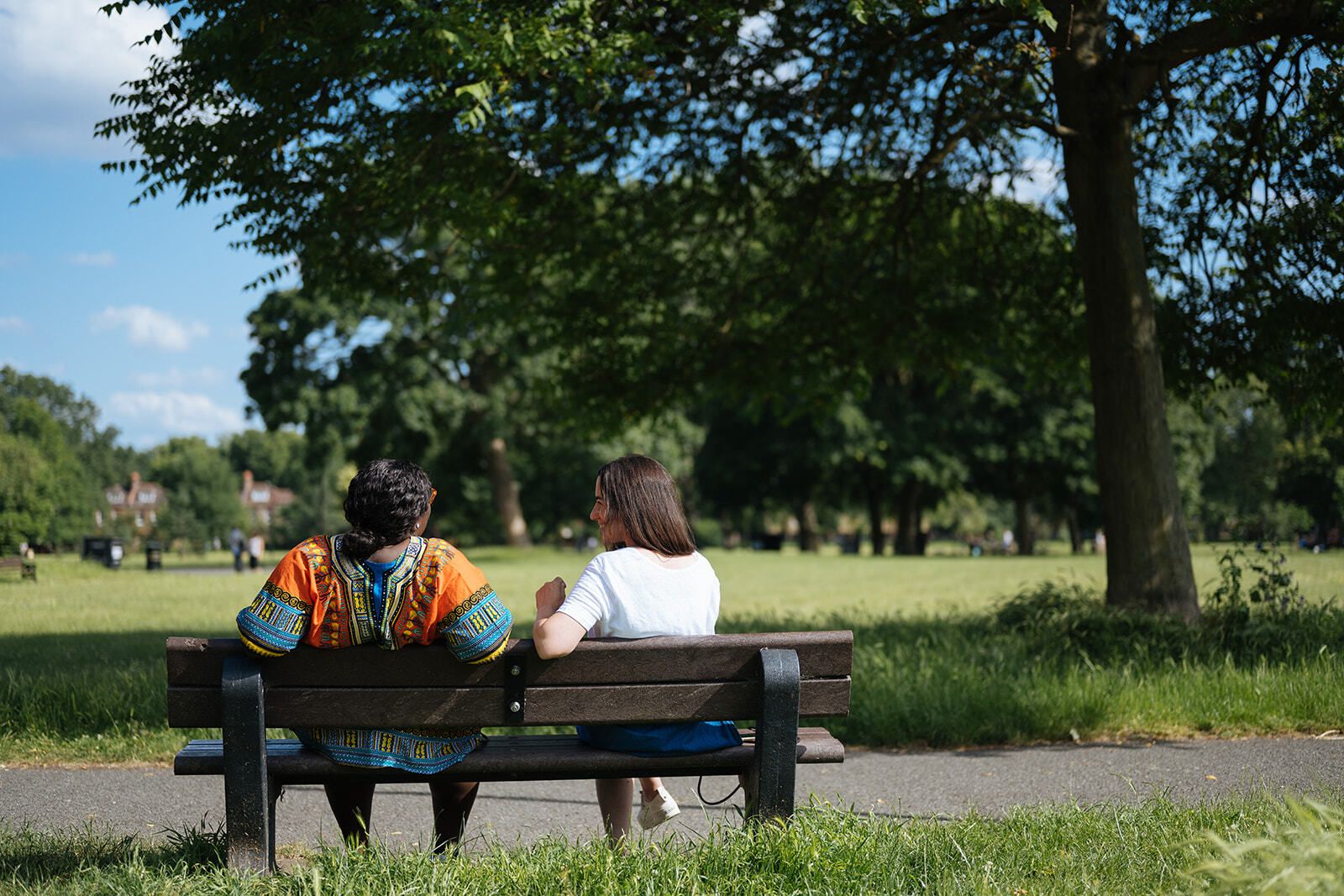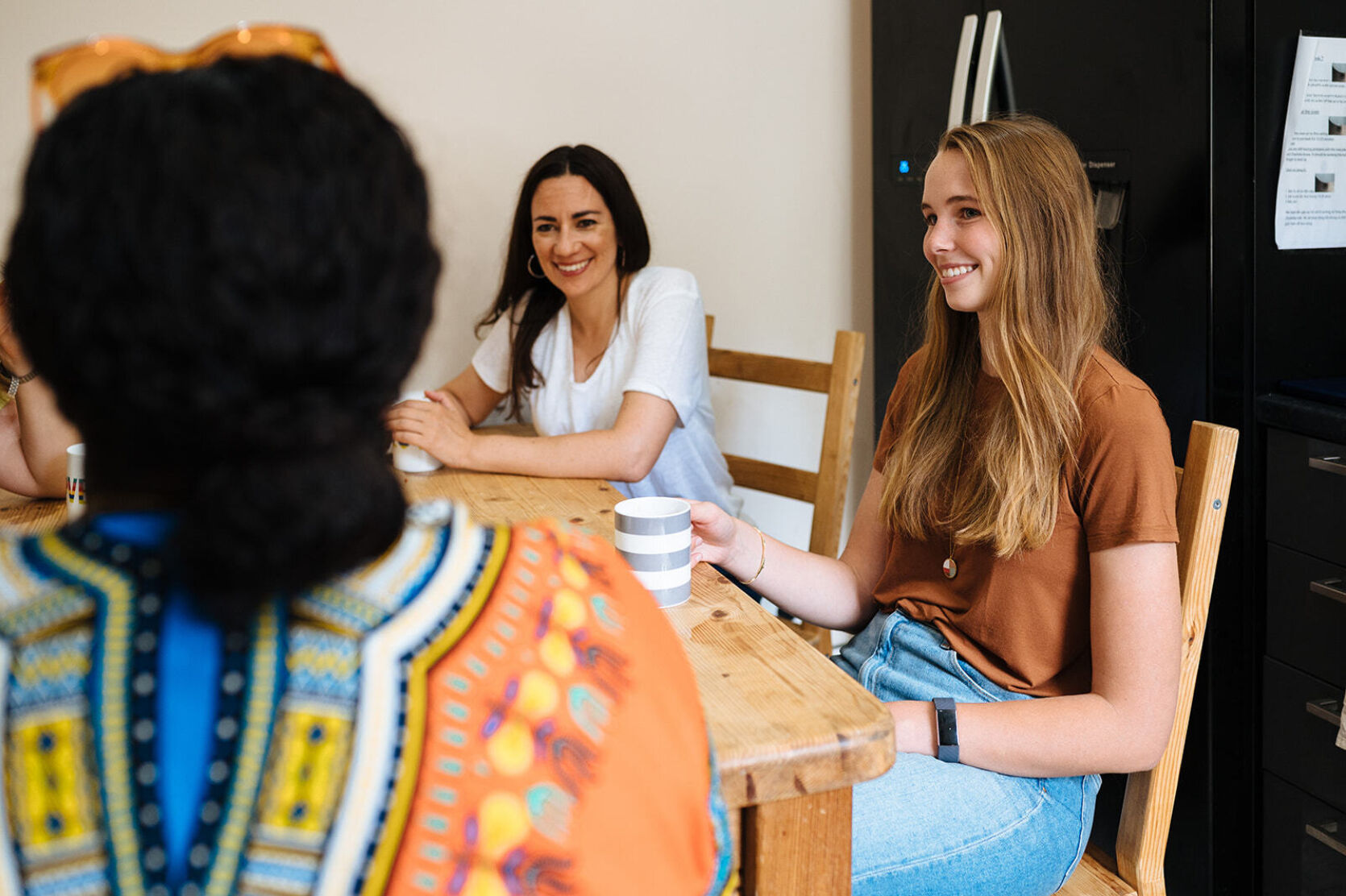
#EndHumanTrafficking
With 49.6 million people around the world trapped in modern slavery, Sunday 30 July is World Day Against Trafficking in Persons, a day to raise awareness and support for people affected by trafficking and exploitation.
Emily Chalke is the Founder and Co-Director of Ella’s, a London-based organisation working with women who have survived trafficking and other forms of violence, and a grantee of the MOPAC VAWG Grassroots Fund. Emily has extensive experience of working with women at risk, overseas as well as in the UK. Following 15 years of working on the frontline and gaining a deep understanding of issues faced by survivors, Emily founded Ella's in 2014. Here she shares the importance and power of aftercare for survivors.
Numbers as big as 49.6 million people trapped in modern slavery can depersonalise an issue, so it’s worth saying up front that every person among this huge number is an individual with dreams, quirks, hopes and talents just like you and me. They are unique, and as such their stories are unique too…
49.6 million individuals
Milana from Lithuania was made vulnerable by poverty and a turbulent childhood. Aged 15, she was offered a good job in the UK by someone she knew and trusted, but was held captive, beaten and forced into sex work as soon as she arrived.
Marie from a country in Africa was sent as a child by an aunt to work in domestic servitude for another family member in the UK. She suffered multiple kinds of abuse but her exploitation went unnoticed for years.
May had to flee for her life when her husband became involved with criminal gangs in the Asian country where she was born. Her ‘helpers’ turned out to be traffickers, and she became trapped and was exploited for many years. ‘It was like I was shut out of the world,’ says May. ‘I could go nowhere, call no one for help. I was helpless. I felt so scared.’
I could go on – every one of the women we work with at Ella’s has a different story. But there are two absolute consistent factors:
- 1) Trafficking, violence and exploitation have a crushing effect on people. Even for those who survive and break free, the effects on their mental and physical health, social and economic wellbeing are devastating. Aftercare is quite simply crucial to their recovery and long-term safety.
- 2) These are wonderful, incredible humans who deserve safety, care and respect.
Leave no one behind
The theme for this year’s World Day Against Trafficking is, ‘Reach every victim of trafficking, leave no one behind’. I couldn’t agree more. I started Ella’s in 2014 in response to the struggle of a survivor, Ella, to find the help she needed to stay safe. Dangerous gaps in the system meant that she was unreached, left behind and let down.
“I committed Ella’s to empowering individuals like her to stay free and rebuild their lives.”
Nine years later, we’ve grown and are currently supporting around 45 women and 30 children a year, but the landscape is more challenging than ever…
Globally, trafficking and people’s vulnerability to it are on the rise:
‘Global crises, conflicts, and the climate emergency are escalating trafficking risks,’ says the UN Office on Drugs and Crime. ‘Displacement and socio-economic inequalities are impacting millions of people worldwide, leaving them vulnerable to exploitation by traffickers. Globally, national responses, particularly in developing States, appear to be deteriorating. Detection rates fell by 11% in 2020 and convictions plummeted by 27%, illustrating a worldwide slowdown in the criminal justice response to trafficking. The COVID-19 pandemic also changed the characteristics of trafficking, pushing it further underground and potentially increasing the dangers to victims by making the crime less likely to come to the attention of the authorities.’
In the UK, where there are an estimated 100,000 people trapped in modern slavery, there is still a lack of support for survivors. ‘There is a serious backlog of cases within the National Referral Mechanism (NRM). Victims often spend months or years in limbo until a decision is made,’ states CSJ in a recent report.
At Ella’s, the need for what we do is urgent and vast. In 2021-22, we received 87% more eligible referrals to our safe houses than we were able to take. Without support we provide, survivors are extremely vulnerable to falling back into danger.
“The women we work with face multiple barriers to recovery and long-term safety – language, confidence, housing, community, education, trauma, employment, the list goes on.”
And to exacerbate all this, we’re facing a deep cost of living crisis and a growing rhetoric of suspicion and cruelty towards people who have survived adversity.
Lasting freedom
There is light at the end of the tunnel. With the right support, survivors can move on from horrific experiences of trafficking and exploitation, and they can thrive. Recovery is not quick, simple or linear, but we see inspiring hope and transformation among the women we work with at Ella’s.
Going back to the women I mentioned before: with time, care and tailored one to one support, they are recovering and are on the road to a bright future. ‘Now I know what I need to know about, to live safely. I don’t feel helpless anymore,’ May told us.
Recovery is possible. Change is possible. Freedom is possible. But only with the right support. We must all stand together, whoever and wherever we are, this World Day Against Trafficking and every day. We must spot the signs, speak up with survivors and stand for kindness in any and every way we can, so no one is left behind.
Our Violence Against Women and Girls Grassroots Fund 2023-2025, in partnership with the Mayor's Office for Policing and Crime (MOPAC), is now open for applications. The fund will continue to focus on supporting the resilience of organisations working to end Violence Against Women and Girls in minoritised and marginalised communities. For more details, including how to apply, visit: https://londoncf.org.uk/grants/vawg-grassroots-fund

